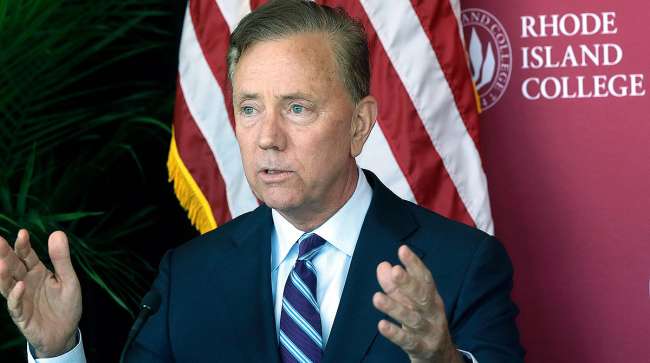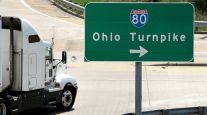Staff Reporter
Connecticut Gov. Ned Lamont’s Transportation Plan Includes Tolls

[Stay on top of transportation news: Get TTNews in your inbox.]
Connecticut Gov. Ned Lamont has released a transportation plan that would be funded in part by electronic tolls.
CT2030, presented Nov. 7, is meant to reduce congestion and improve mobility through projects aimed at highways, rail, ports, airports and buses. The initiative outlines $14 billion in investment for roads and bridges and $7 billion for public transportation.
#CT2030 is a plan to transform Connecticut's transportation system to reduce congestion and make travel quicker, safer, convenient, and reliable.
This includes improvements to our:
Roads
Trains
Buses
Airports
Ports
Check out the plan at https://t.co/lh90R1Veut pic.twitter.com/KSS1rC0E18— Governor Ned Lamont (@GovNedLamont) November 7, 2019
According to the plan, “user fees,” collected through electronic overhead gantries, will support some of the investment. The user fee program will begin in 2023. Connecticut hasn’t had tolls in place since the late 1980s; they were removed after a fatal truck crash at a toll plaza.
Connecticut forms an important link between New York City and Boston, and the plan notes about 40% of the fees would be paid by out-of-state drivers. Fees range from 50 cents to $1 for cars, $1.25 to $2.50 for medium-size trucks and $3.50 to $7 for heavy trucks. Cars and trucks with a Connecticut-issued E-ZPass device will receive a 20% discount.
Revenue will support 14 bridge projects and fund other transportation improvement projects. The tolls will be located at the sites of the 14 projects. Additional funding to support CT2030 will come from the state’s Special Transportation Fund, federal grants and Special Tax Obligation bonds.
Motor Transport Association of Connecticut President Joe Sculley opposes the tolls. He pointed out that the trucking industry already pays diesel taxes, petroleum products gross earnings taxes and motor vehicle registration fees. The petroleum products gross earnings tax, known as PGET, is charged on the gross earnings of companies that distribute petroleum products in Connecticut.
“This would be a fourth tax for the purpose of funding what we’ve already paid for with those other three,” Sculley said. “I think this is still definitely an attempt to go after the trucking industry.”
Projects in CT2030 are divided into two categories: preservation, and maintenance and enhancement efforts.
CT2030 outlines a slew of road and bridge improvements targeting certain highly traveled routes, including interstates 95, 91 and 84, as well as state routes 9 and 15. Projects include redesigning exits, reconfiguring interchanges and improving the Dexter Coffin Bridge, which provides an important link to Bradley International Airport north of Hartford.
For rail, CT2030 proposes new railcars, express service to New York City and high-speed data service on trains. The plan also calls for better signage for buses and additional shelters.
According to a press release from the governor’s office, the plan includes input from transportation experts, lawmakers from both sides of the aisle, neighboring state leaders and federal officials.
User Fee Project Chart Nov ... by Transport Topics on Scribd
Lamont’s transportation plan has faced substantial challenges since he was elected in 2018. Specifically, tolls were a point of contention. In March, Connecticut lawmakers spent 11 hours peppering transportation officials with questions and listening to public input on Lamont’s proposal for electronic tolls.
Connecticut’s infrastructure earned an overall C- on the American Society of Civil Engineers’ most recent report card, which came out in October 2018.
“For generations, the state has neglected critical investments in our infrastructure, hampering economic growth and leaving residents in endless hours of traffic wondering why state officials didn’t fix these problems years ago,” Lamont said in a statement. “For the future of our state, we can no longer kick the can down the road on these improvements. We must fix this long-overdue problem and move our state forward today.”
Want more news? Listen to today's daily briefing:


